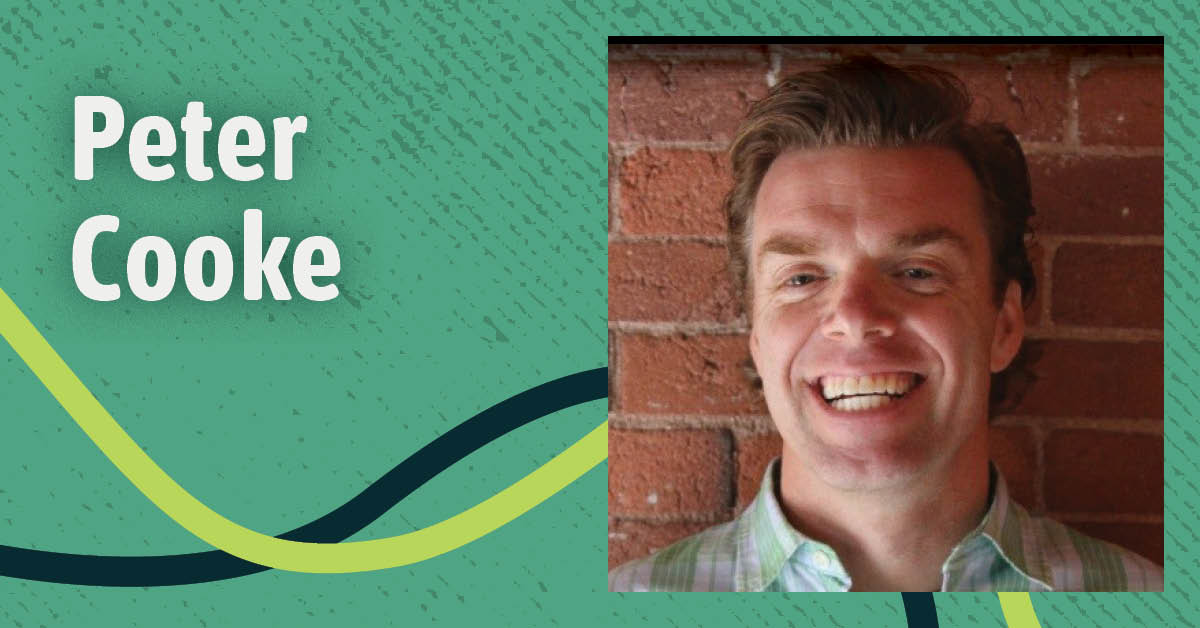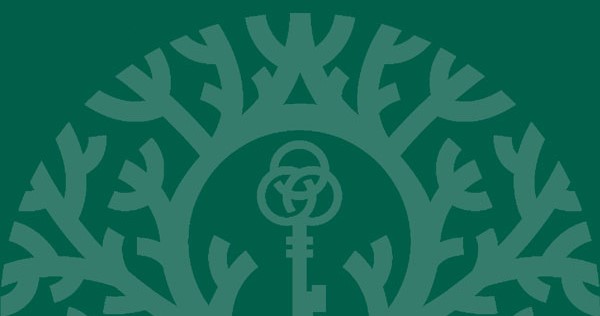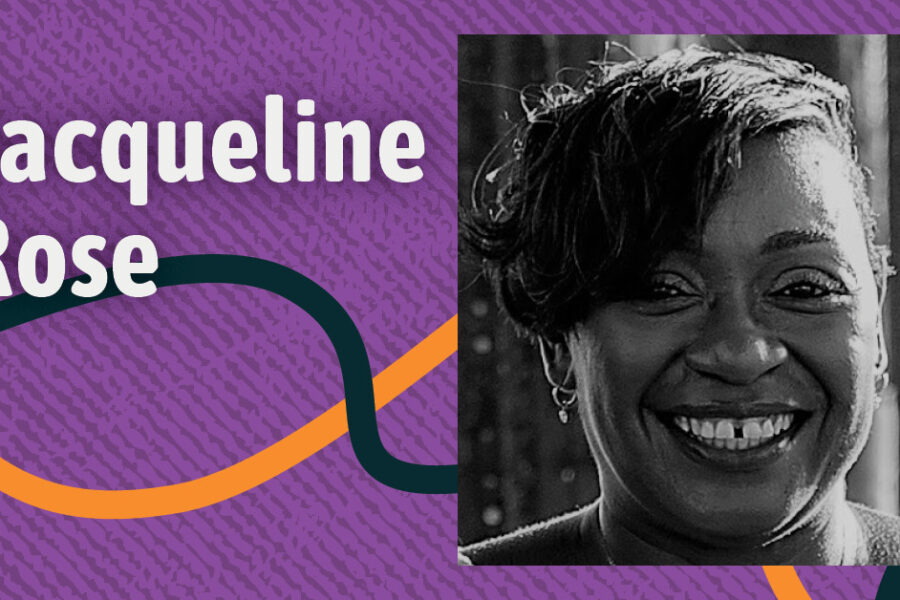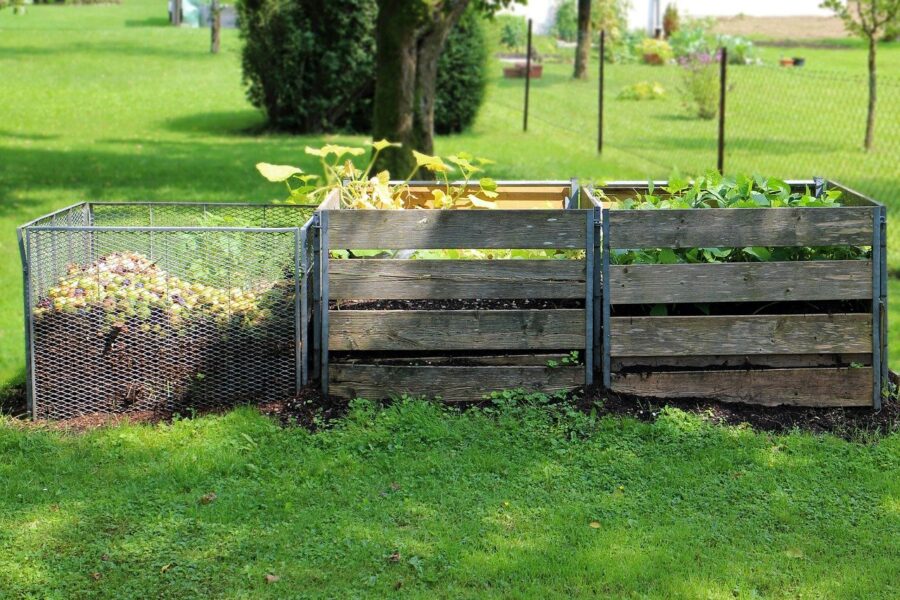What is the industry sector that has the greatest opportunity to communicate and demonstrate the importance of economic, environmental, and social sustainability? According to Peter Cooke, the answer is: the grocery store.
“In my opinion, the food retail sector where the biggest opportunities exist to influence the planet to be more sustainable,” he says, “They use a massive amount of resources. Customers go in and out with more frequency than any other business. And this is where we get close to ninety-nine percent of everything we consume.”
That’s why he is targeting typical community grocery stores as an environmental consultant for the Ratio Institute—an organization he helped found and through which he’s worked with over a thousand grocery stores across the country, from independently-owned stores to chains with hundreds of stores.
Cooke is a 2001 graduate of Antioch New England’s Master’s in Resource Management and currently teaches as an adjunct instructor in Antioch’s Environmental Sciences Department. He’s both a teacher and an environmental consultant to grocery stores—but he’s also so much more. And he’s doing the work that he’s trained his whole life to do.
Early Experience in Sustainability
At the beginning of his career, Cooke spent eleven years working for the state government of Maine doing business sustainability work, then eight years working for a small regional NGO. He started the Maine State Government’s Environmental Leader Certification program among other sustainability programs on his resume.
He spent the next twenty years in the sustainability field, working in dozens of industries, from ski areas to industrial production of metal platers, composites, and wood products.
“The challenge of helping the planet be more sustainable is daunting,” Cooke says of the challenges he has repeatedly come up against in his work. Too often, business leaders don’t see the dollar value of sustainability. And on the flip side, sustainability managers are not always given a large enough team or budget to do the work—or a project is supposed to be carried out in an inhospitable political environment or time.
Cooke has always kept a good perspective around these difficulties, though. He compares them to his time serving as an Outward Bound instructor and base operations manager when he was younger. Outward Bound schools offer students the opportunity to grow through challenging expeditions in the outdoors. That experience was not unlike being a sustainability consultant. As Cooke explains, “Turns out trying to get a group of sweaty, disagreeable teenagers through the woods on an expedition is a lot like sustainability work. It’s hard, people are frustrated, we need to be efficient, there is still so far to go… At Outward Bound, we needed to build relationships in order to get the group to the destination.” The same has proved true in all of Cooke’s work.
Getting Closer to Sustainability By Listening and Nurturing Relationships
Today, beyond his work with the Antioch and the Ratio Institute, Cooke is working with Ecology Action, a large NGO that has been doing good work for half a century. At Ecology Action, Cooke spends each day trying to figure out ways to express the business case for sustainability by looking at a company’s use of resources: energy, materials, water, and employees.
Through more than twenty years of professional experience, Cooke has found the action of building relationships across divisive ideological lines to be an essential component of enacting significant positive change. “If you go about your work as an environmental professional with resentment in your heart,” he says, “you’ll have a hard time feeling grateful for the opportunities that are calling for you to express the you who knows how to fight for change.”
When asked what his primary motivation is for doing sustainability work, Cooke quotes Horace Mann’s most famous exhortation: Be ashamed to die until you have won some victory for humanity. For Cooke, this mission begs the question: What does a victory for humanity look like? Is there a common cause that all humans can work toward, together? And his answer is: helping improve our species’ sustainability on the planet would be just such victory.
Unfortunately, when it comes to climate change and the policy solutions needed, people of different backgrounds and beliefs often hold such strong emotions around it that viewpoints are often polarized, creating barricades that stand in the way of collectively building a healthier, more functional society and world. However, it is right here, at this tender and incendiary place of relationship and obstacles-to-relationship, that Cooke sees opportunities for solutions, growth, and large-scale positive change.
“One mantra that has come to me during this work is that we fight by building relationships,” he says. “It’s interesting to me because the inverse is not true. We can not build relationships by fighting. But we can fight by building relationships.”
This has been borne out time and again in Cooke’s work. He’s had numerous experiences working with business owners or managers who initially seemed irritated by having yet another audit performed at their store. “Sustainability work is a lot like sales,” he says. “You need to build trust. You need to frame your message to the person you’re trying to work with—and not frame it in a way that makes sense to the ‘choir’ we typically interact with.”
In these situations, he’s found that, along with a little humor, delivering a message that his interlocutor can relate to as a businessperson—usually this is related to cost savings vs. revenue—can help foster miraculous transformations. As he says, “I’ve been in many meetings where the client begins with arms folded looking somewhat resistant, to seeing their resistance melt away, replaced with a genuine interest in receiving more information.”
The Importance of Connection
Cooke regularly wrestles with feelings of resentment—a common theme in the field of sustainability. It’s easy to rail against polluters, people in power, the ‘other’ party. However, he views these resentments as barriers to the work, as resentment impedes relationships. And relationships are needed to progress the agendas he and his team put forth.
“I’ve had success on projects because I was able to build relationships with people that would be considered barriers,” he says. “I think Antioch students are more prepared to do that kind of work than others. We learn about the importance of connection here in a more experiential, less academic way that is much needed.”
Cooke is grateful to maintain a link to Antioch through his role as an instructor. He’s also had further work opportunities come his way through those connections. And he gives back, too, because he sees the world as built on reciprocal relationships. He has hired Antioch students as interns and contracted employees to do sustainability audits with his clients and businesses. These circular relationships are deeply rewarding.
Cooke’s long-term goal is to continue to connect Antioch to his work through service learning opportunities through which he can help businesses and communities become more sustainable. For Cooke, it all comes down to relationships. “Having the right connections and the right team is essential,” he says, “because this work is less effective solo.”





